Kira Systems
-
 Technology
TechnologyLitera Announces Aquisition Of Kira Systems
Kira will spin off a new company to serve corporate clients. -
 Technology
TechnologyWhy Are Lawyers Leaving Money On The Table?
Law’s slow integration of AI, as explained by Kira Systems CEO Noah Waisberg.  Sponsored
SponsoredHow To Build And Manage Your Law Firm Rate Sheet
If you’re struggling with price setting — or, resetting prices — we’ve got the strategies to get you off the schneid.-
 Technology
TechnologyNew Book Aims To Demystify A.I. For Lawyers
A straight-forward look at the technology that will drive the industry.
-
 Technology
TechnologyILTACON Becomes ITLA>ON As Legal Technology Show Goes Remote
The show opens with a bevy of announcements. -
 Technology
TechnologyLegal Technology Jumps Into Police Reform
Kira Systems joins with Campaign Zero to provide critical insights into police union contracts. -
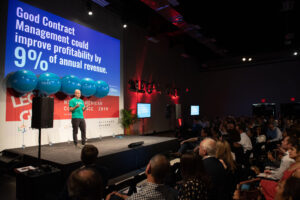 Technology
TechnologyThe Insider’s View On Legaltech VC Funding
Insights on the growing Legaltech investment market from someone who’s lived it. -
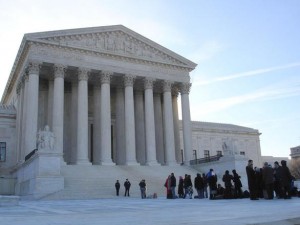 Non-Sequiturs
Non-SequitursNon Sequiturs: 04.28.19
* Adam Feldman poses — and answers — an interesting question: are particular justices more or less partial to certain lawyers’ or law firms’ positions? [Empirical SCOTUS]
* Speaking of the federal judiciary, Carrie Severino offers this helpful scorecard of President Donald Trump’s track record on judicial appointments — which underscores, as she notes, the importance of the 2020 elections. [Bench Memos / National Review]
* And speaking of President Trump, Joshua Matz and Laurence Tribe have this excellent explanation of why the Supreme Court does not have a role in adjudicating impeachments. [Take Care]
* In the wake of the Mueller Report, Ilya Somin pushes back against conventional wisdom and takes this position: “Not all foreign interference in elections is unjustified. Far from it, in fact.” [Volokh Conspiracy / Reason]
* Fair use in the copyright context is an infamously amorphous concept — so the Fourth Circuit’s recent ruling in Brammer v. Violent Hues Productions deserves your attention. [All Rights Reserved]
* Congratulations to Westlaw Edge, voted the “best new analytics product” by the readers of Dewey B Strategic. [Dewey B Strategic]
* And congrats to Kira Systems on being picked by Bryan Cave Leighton Paisner as its AI solution for “high-volume workstreams” across the firm. [Artificial Lawyer]
* If you’re a libertarian-leaning lawyer with two to six years of experience under your belt, check out these great employment opportunities over at IJ. [Institute for Justice via Volokh Conspiracy / Reason]
-
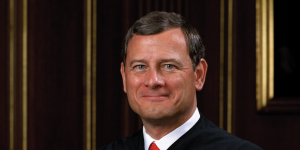 Non-Sequiturs
Non-SequitursNon Sequiturs: 03.24.19
* In the wake of Justice Anthony M. Kennedy’s retirement, I predicted that Chief Justice John Roberts, a staunch institutionalist when it comes to the Supreme Court, would serve as a moderating influence at SCOTUS — and so far that seems to be the case, with Adam Feldman noting a “a mild liberalizing over time” in JGR’s jurisprudence. [Empirical SCOTUS]
* Speaking of SCOTUS, it’s high time for the Court to resolve the messy circuit split on email privacy under the Stored Communications Act, according to Orin Kerr. [Volokh Conspiracy / Reason]
* The Trump Administration’s new executive order about free speech on university campuses might harm rather than help the cause of academic freedom, as Paul Horwitz points out. [PrawfsBlawg]
* Republicans aren’t the only ones with purity tests for judicial nominations; Demand Justice, a left-wing group focused on the federal judiciary, has high standards for Democratic opposition to Trump nominees. [Bench Memos / National Review]
* While you wait for the 2019 edition of Above the Law’s law school rankings, check out the latest installment of the “revealed preferences” law school rankings, by C.J. Ryan and Brian L. Frye. [SSRN]
* What’s next for Kira Systems, a leader in the world of legal AI? Co-founder and CEO Noah Waisberg isn’t resting on his laurels — and he’s putting that $50 million investment from last September to work. [Artificial Lawyer]
* Fastcase continues to forge new partnerships — and in its latest alliance, it will give its subscribers access to select titles from the American Bar Association (which, full disclosure, published my book (affiliate link) in 2014). [Dewey B Strategic]
* If you’ll be in New York this coming Wednesday, consider attending the inaugural Kenneth P. Thompson ’92 Lecture on Race and Criminal Justice Reform at NYU Law School, focused on wrongful convictions and the roles of prosecutors and others in the criminal justice system. [NYU Law]
 Sponsored
SponsoredTrust The Process: How To Build And Manage Workflows In Law Firms
If you’re feeling inefficient but don’t know why, this episode of the Non-Eventcast is for you.-
 Technology
TechnologyA Conversation With Noah Waisberg Of Kira Systems
Legal tech conversations from the cabana at CLOC. -
 Non-Sequiturs
Non-SequitursNon-Sequiturs: 07.15.18
* What’s it like to take the California bar exam as a 46-year-old law professor? Orin Kerr enlightens us. [Reason / Volokh Conspiracy]
* Charles Glasser points out the dangers involved in holding a speaker responsible for actions taken by listeners. [Daily Caller]
* In the Term that just ended, the Supreme Court tackled technology issues in a big way — and the implications are far-reaching, as J.P. Schnapper-Casteras explains. [Take Care]
* Elizabeth Slattery and I joined Laurence Colletti, guest host of the Lawyer 2 Lawyer podcast, to discuss Justice Anthony M. Kennedy’s SCOTUS retirement and the nomination of his successor, Judge Brett Kavanaugh. [Legal Talk Network]
* There has been a lot of speculation about how a Justice Brett Kavanaugh might move the Court to the right; Adam Feldman digs into the cases to make some educated guesses. [Empirical SCOTUS]
* What lessons could losing the Court teach the Democrats? Here are some thoughts from Seth Lipsky and David Leonhardt. [New York Post via Instapundit]
* And what lessons can lawyers learn from Judge Kavanaugh’s excellent writing? Ross Guberman identifies five of them. [Legal Writing Pro]
* Joel Cohen and Dale Degenshein explore what happens when a citizen “flips the bird” at the police (hint: it’s not a good idea). [Law and Crime]
* Congratulations to Thomson Reuters on the launch of Westlaw Edge, the latest version of its industry-leading legal research platform — which boasts a slew of new, artificial-intelligence-driven features, helpfully explained by Jean O’Grady. [Dewey B Strategic]
* And speaking of AI, congratulations to Fenwick & West on cutting the time for contract review in half, with the help of technology from Kira Systems. [Artificial Lawyer]
-
 Non-Sequiturs
Non-SequitursNon-Sequiturs: 02.18.18
Ed. note: We will not be publishing on Monday, February 19, in observance of President’s Day.
* Congratulations to my friend and former co-clerk, John Demers, on his long-overdue confirmation as head of the Justice Department’s National Security Division. [Reuters]
* Which lawyers and justices take the lead on the most important Supreme Court cases? Adam Feldman has the answers, as always. [Empirical SCOTUS]
* Professor Ilya Somin breaks down the recent Fourth Circuit ruling on Trump’s Travel Ban 3.0. [Volokh Conspiracy / Reason]
* A leading legal technology company, Kira Systems, is looking for a few good law librarians (to apply for its new job as a Machine Learning Knowledge Analyst). [Dewey B Strategic]
* Lawyer and activist Glenn Magpantay, executive director of the National Queer Asian Pacific Islander Alliance (NQAPIA), explains what’s at stake with the Dream Act. [Advocate]
* Stroock’s Joel Cohen draws lessons for lawyers from the buzz-generating new movie, The Post. [New York Law Journal]
* What role can expert witnesses play in #MeToo litigation? Lawyer Kat Hatziavramidis shares some insights. [Forensis Group]
* The Mrs. Palsgraf of the United Kingdom — a famous torts plaintiff named May Donoghue, who sued a beverage manufacturer after she discovered a decomposing snail in a bottle of ginger beer — is getting a statue erected in her honor. [Legal Cheek]
* Not as bad as sexually assaulting a student intern, but another Biglaw partner stands accused of making degrading, sexually charged comments to a junior attorney. [RollOnFriday]
* In advance of its Global Legal Hackathon (February 23-25), the Global Legal Blockchain Consortium welcomes a new member: Fasken, a leading Canadian law firm. [Artificial Lawyer]
-
 Morning Docket
Morning DocketMorning Docket: 12.01.17
* Trump team decries Kate Steinle verdict as jury finds their preferred political talisman not guilty of murder. [SF Gate]
* IRS needs $1.7 million in back taxes? X gon’ give it to you. [Law360]
* Judge Pryor thinks court packing is stupid, which probably burned all his bridges with the Heritage Foundation. [National Law Journal]
* Pay for in-house counsel is up… women still lag behind. [Corporate Counsel]
* Black women in law face discrimination on two fronts. It’s almost like they sit at the intersection of oppressions. [American Lawyer]
* Judge orders handcuffs to prevent spanking. [ABA Journal]
* Even Texas can’t defend voter suppression anymore. [Texas Tribune]
* More M&A firms join the AI train. [American Lawyer]
-
 Technology
TechnologyIrma, Waze, And Watson
Today's technology is truly transformational, but lawyers must use it correctly and appropriately.
Sponsored

How To Build And Manage Your Law Firm Rate Sheet

A Law Firm Checklist For Successful Transaction Management


How Savvy Lawyers Build Their Law Firm Rate Sheet
Sponsored

Trust The Process: How To Build And Manage Workflows In Law Firms

Not All Legal AI Is Created Equal

-
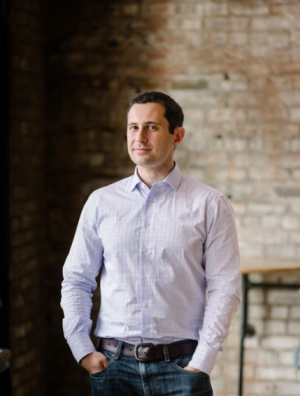 Artificial Intelligence, Promoted, Technology
Artificial Intelligence, Promoted, TechnologyArtificial Confusion: The (Overblown) Threat Of Artificial Intelligence
The reality is that we are many years away from the rise of artificial superintelligence, especially in the legal industry. -
 Technology
TechnologyReady To Leave Law For Legal Disruption?
I can't help but remember my own frustrating OCI experience. -
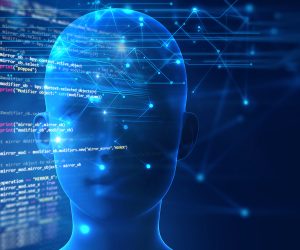 Technology
Technology5 Things I Would Have Told You At #ILTACON2017
Making it toLas Vegas for #ILTACON2017? I'm officially jealous. -
 Technology
TechnologyLegal Services Innovator Axiom Unveils Its First AI Offering
Artificial intelligence today is like the internet in the late 1990s. -
 Technology
Technologyalt.legal: The New Alt-Enabled View On Contracts And Diligence
Contract management is super hard. -
 Non-Sequiturs
Non-SequitursNon-Sequiturs: 06.14.16
* So, you lucky associate you, expect a bit of extra cash this summer? Here’s how you should be spending it. [American Lawyer]
* Chris Christie allegedly took document preservation tips from Dick Nixon. [WNYC]
* DLA Piper looks to join the ranks of employing droids, announcing a new partnership with Kira Systems to produce an AI tool for conducting due diligence. [DLA Piper]
* Oh, the stupid things law schools do. Like how a bunch of Touro 3Ls are ineligible to sit for the bar exam this summer… [Reboot Your Law Practice]
* Bands from Google Legal, Kirkland & Ellis, Lieff Cabraser, Simpson Thacher, Kazan Law, and Morgan Lewis are competing in a Battle of the Bands at 1015 Folsom nightclub tomorrow night in San Francisco in support of The Family Violence Appellate Project. [Family Violence Appellate Project]
* M&A is having a pretty good 2016. [Fortune]
* “The Scrooge Effect” for Biglaw firms that refuse to give pay raises to their associates. [Law and More]
* The previously lost Marx Brothers musical, “I’ll Say She Is,” is currently playing at the Connelly Theater in the East Village. And it stars, Kathy Biehl a practicing New Jersey and Texas lawyer. [I’ll Say She Is]
-
 Conferences / Symposia, Technology
Conferences / Symposia, TechnologyThe Circuit: California Dreaming
Columnist Monica Bay discusses two upcoming law-related events in the San Francisco Bay Area, which should offer many delicious predictions and prognostications.